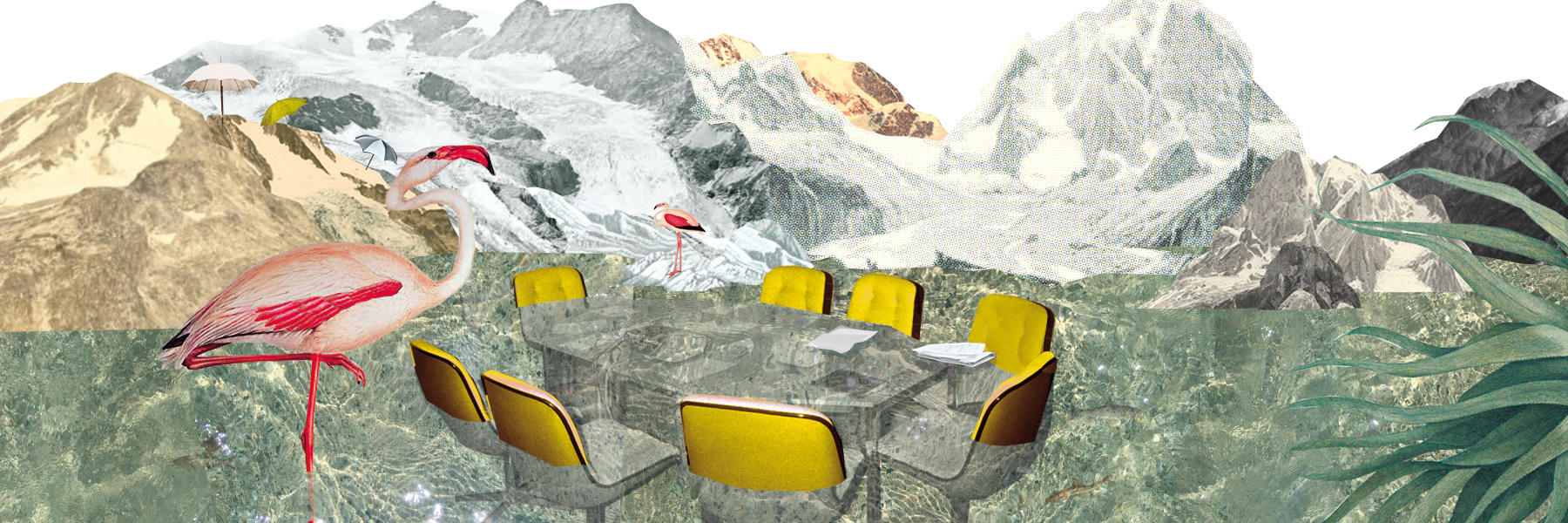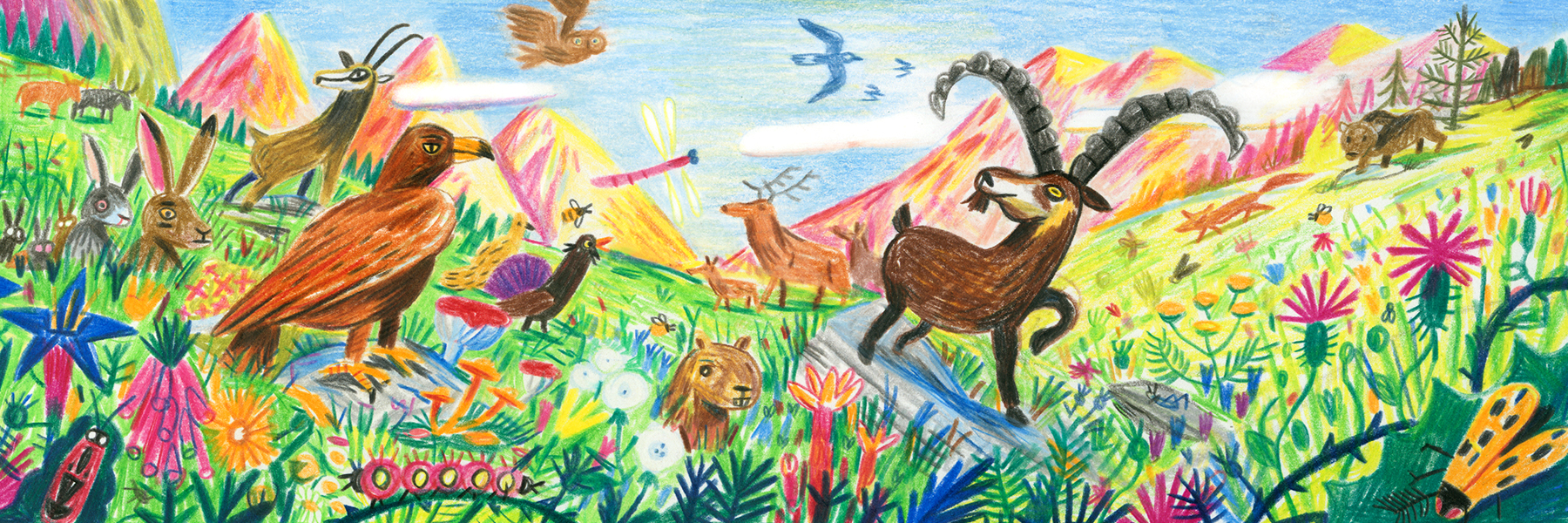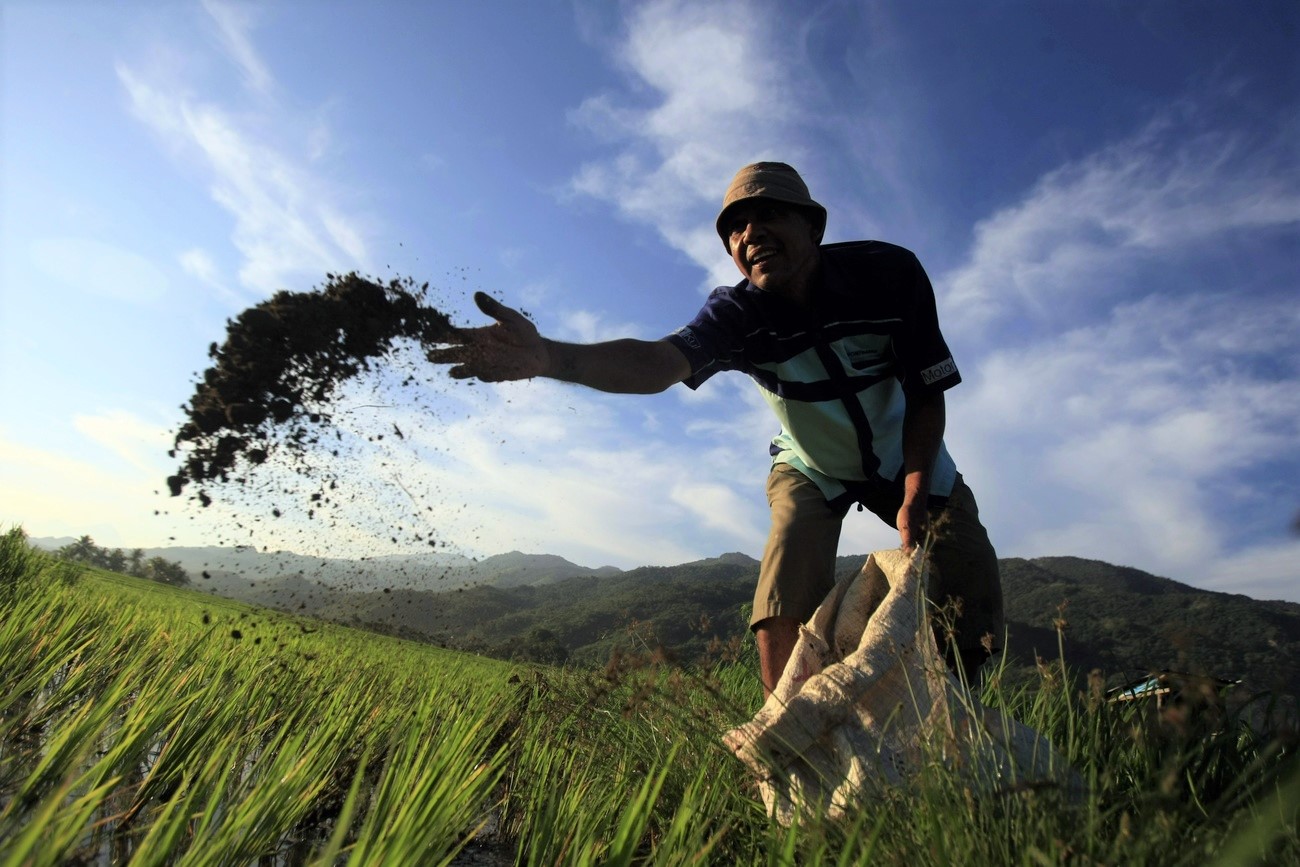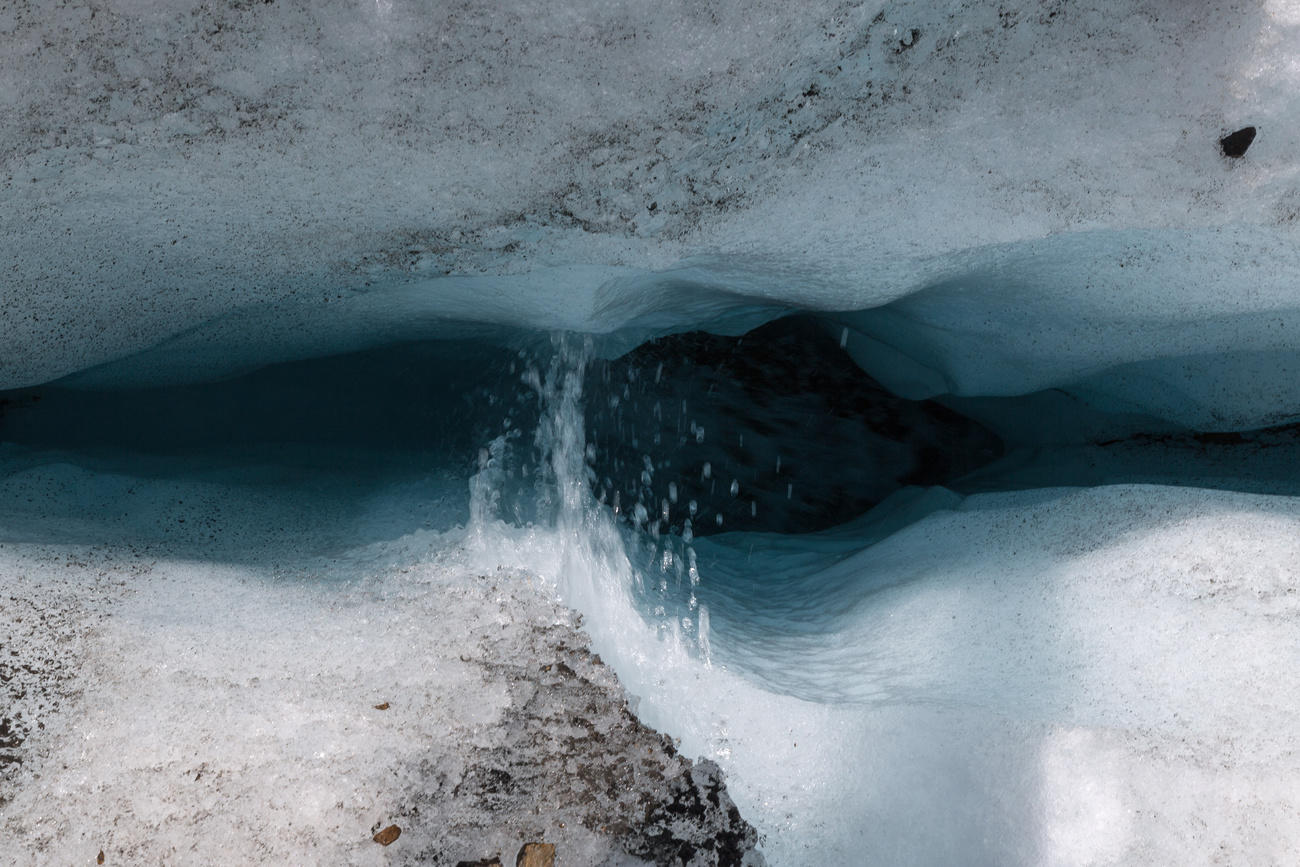The Swiss Alps are hotter than ever
Last year was the hottest on record for the Swiss Alps, and the second hottest for the whole of Switzerland. It’s part of a global climate trend that will leave some species out in the cold.
It started last winter already – December 2019 to February 2020 in meteorological terms – which was the hottest winter ever recorded in Switzerland. Overall, 2020 was extremely warm and sunny, according to MeteoSwiss, the Federal Office of Meteorology and Climatology.
“In most areas of Switzerland, the 2020 annual temperature rose 1.4 to 1.6 °C above the 1981-2010 norm,” reported MeteoSwissExternal link at the end of last year. This made it Switzerland’s second hottest year after 2018.
Of course Switzerland isn’t alone. Globally, 2020 was among the top three warmest years on record, according to the World Meteorological Organization (WMO), which is still compiling data.
“The average global temperature in 2020 is set to be about 1.2 °C above the pre-industrial (1850-1900) level. There is at least a one in five chance of it temporarily exceeding 1.5 °C by 2024,” said WMO Secretary-General Petteri Taalas in early DecemberExternal link.
Every year since 2015 has been among the warmest, according to WMO statistics. December 2020 marked the fifth anniversary of the Paris Agreement on Climate Change – when the world’s nations agreed to try to keep the rise in the global temperature “well below 2 °C” compared with pre-industrial levels.
“We welcome all the recent commitments by governments to reduce greenhouse gas emissions because we are currently not on track and more efforts are needed,” WMO’s Taalas said.

More
Why melting glaciers affect us all
Melting glaciers, migrant grasshoppers
The warmer the Alps are, the smaller their glaciers get. Since 1850, Alpine glacier mass has decreased by about 60%, and the melting has accelerated in recent years. Under a strong warming scenario, “the Alps would be mostly ice free by 2100” said scientists from Swiss federal technology institute ETH Zurich and the Swiss Federal Institute for Forest, Snow and Landscape Research (WSL) in a 2019 studyExternal link. This development increases the risk of natural disasters like sudden flooding while reducing drinking water reserves.
At the same time, high altitude warming disturbs the balance of flora and fauna. Plants that previously couldn’t survive above certain altitudes are creeping higher up the mountains and competing with Alpine flora for space and nutrients. This in turn affects the species that depend on them for food and shelter.
In a recent study, researchers at WSL brought grasshoppers normally found at middle elevations up into the Alps. There they observed their feeding habits, and concluded that global warming could “disrupt the ecological balance because mobile animals, including many herbivorous insects, can expand their habitat to higher elevations more rapidly than sedentary plants” and that “insects from lower altitudes could therefore have an easy time in alpine habitats with resident plants that are insufficiently or not at all prepared to defend themselves against those new herbivores. This could change the current structure and functioning of alpine plant communities as a whole”.
Another result of global warming is that trees in the Alps are coming into leaf earlier than they used to. According to WSL, premature leaf and needle development is problematic for the development and functioning of forest ecosystems.
















You can find an overview of ongoing debates with our journalists here . Please join us!
If you want to start a conversation about a topic raised in this article or want to report factual errors, email us at english@swissinfo.ch.